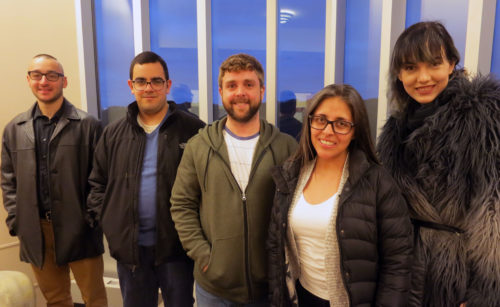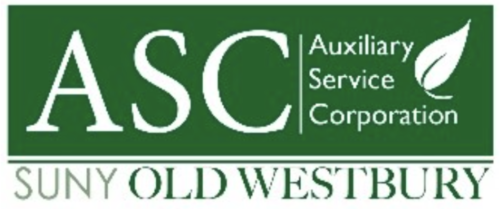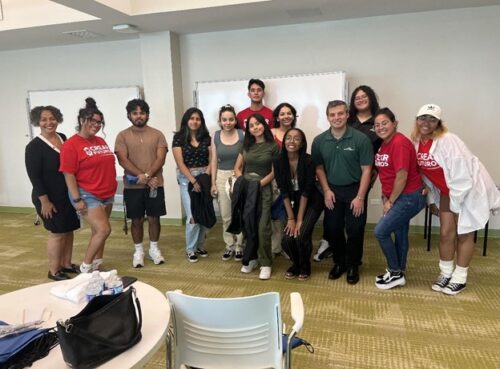
Since 2015, the Master of Arts in Liberal Studies (MALS) program here at OW has been helping students further their education at an affordable price that’s close to home. This program was developed for over a year, engaging professors from all different departments to create a new program to help graduate students to advance their education and expand their thoughts and ideas.
“The program is designed for students to develop their own academic interests within the constraints of the courses being offered,” stated Dr. Carol Quirke, Acting Graduate Director and Associate Professor of American Studies.
MALS students have felt the difference in undergraduate versus graduate school in regard to the development of their own concepts.
“This experience has differed from my undergrad in that I have been developing my own ideas and research areas of interest,” said Sal Fiorenti, a first-year graduate student in the MALS program. “Choosing to write a thesis or do an internship will definitely be a proud moment once I get there.”
The curriculum for the MALS program consists of one introductory course that everyone must take, eight additional classes that can be within any department, and a thesis or internship as a capstone. There are ten concentrations that students can choose from when partaking in the program: American Studies, Cultural Studies, English Literature, History, Immigration and Migration Studies, Media Studies, Mental Health, Modern Languages, Social Justice, and Visual Studies. Each concentration has different classes to choose from; the only downside is that not all of the classes listed are available every semester.
Students who choose to pursue their Master’s Degrees through the MALS program can expect to face challenges they may have had the benefit of overlooking while undergraduates. One of such challenges that many use as a tool throughout the pursuit of their Bachelor’s Degree is procrastination; just know it won’t fly (or at least not as well) in Grad School.
“My experience with the MALS program has been challenging,” stated Fiorenti. “I tend to do things at the last minute, which is really hard to do in graduate school. When I’m on top of my classes, it’s definitely a very rewarding program.”
The MALS program is still relatively new and still evolving to suit students’ needs, but that can be one of its advantages. Dr. Quirke spoke on the intimacy and attention given that works to the students’ advantage throughout the program:
“We’re a new program – three years old – so it’s still very small and we hope that we grow, but the advantage of that smallness is that there’s a really intimate relationship between the students and the faculty,” stated Dr. Quirke. “And I think students really get a lot of attention for the analysis and critical thinking that they’re doing in their writing and they get to know each other as well, which is exciting.”
Students have already felt the difference the program has made, and that it will make to their future, and have high hopes for what it will bring.
“I’ve already been contributing to and benefitting from the program,” said Fiorenti. “I think having a mentor like Dr. Quirke, who really cares about her students, makes it easier to always take the courses that work for oneself or to study research areas that are fun.”
While undergraduates may have a slightly tighter regimen to follow while pursuing their degrees, there are many different ways in which MALS students can apply their research, gain experience, and develop skills while in the program.
“We’ve had people work on the Model UN, we’ve had people develop mariachi music arrangements for public school students, we’ve had students work at the women’s center at a local soccer league that does gang prevention, so it’s really a range of kinds of activities that people have engaged in,” stated Dr. Quirke.
In addition to all of the abstract options for capstone projects, throughout the program MALS students can further mold their ideas and what they may decide to do with their degrees.
“At the graduate level, students really shape what the degree is going to look like for them,” stated Dr. Quirke. “So they should be thinking, as they’re taking classes, ‘What interests me the most in the world?’ ‘If I’m in a class on autoethnography, how do I explore that interest in that class?’ Or, ‘If I’m in a class on visualizing America, how do I look at the visual arts to consider a problem that I’m intrigued by?’”
According to Dr. Quirke, some of the different areas students have decided to research include, and are not limited to: looking at Colin Kaepernick and his effects, the Gettysburg Address, 1940s cartoons and the racism of those cartoons, performance artists who play with gender and sexuality, among many others.
Prices for the program may vary, but the OW website states the following in regard to cost:
“As many students pursue the MALS alongside their employment and other responsibilities, the cost of the program varies depending on how quickly they complete their coursework. The cost of graduate tuition for 2016-17 is $453 per credit for New York State Residents and $925 per credit for non-residents.”
Other prices, admissions requirements, and other details pertaining to the curriculum may be found on the OW website.







